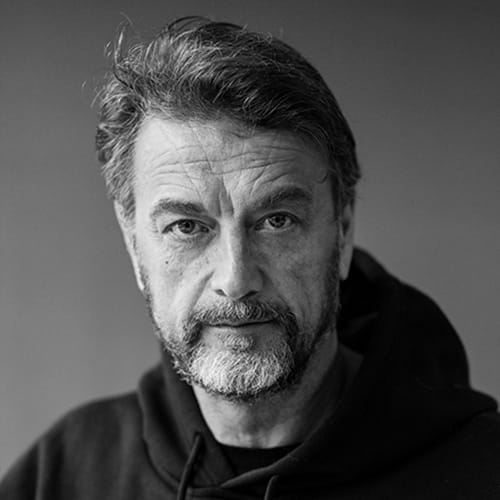Tatjana Trbojević, daughter of the late Banja Luka judge Mirjana Trbojević, recalls the evening her mother’s life ended.
The mother of two was spending a leisurely evening at home after returning from a walk in the mountains. She was peeling a melon for a fruit salad. She put the peels into a bag and opened the door to the hallway where the family temporarily left garbage.
Then, if the Republika Srpska (RS)’s leading court forensic expert is to be believed, she dropped a hand grenade at her feet and killed herself.
Her children say their mother was murdered.

She left no note or indication why she would commit suicide. Family and friends called Trbojević happy, financially secure and successful. She had that evening made an appointment with her hair dresser for the next morning, and was looking forward to an upcoming trip to London. She left her daughter listening to music in the bedroom. Her daughter later found her shrapnel-laden corpse in the hall.
Forensics expert Željko Karan, who arrived at that scene four years ago, later conducted an autopsy and wrote in a report t that Trbojević’s death was ‘a suicide or a murder.’ He added, it ‘seemed closer to a suicide.’ He favored suicide ‘considering the location of the blast and the pathological changes to the body’ according to the report.
‘She had placed the grenade on the concrete and bent over’ Karan said in a recent interview with reporters for the Center for Investigative Reporting in Sarajevo (CIN). ‘I was at the event. I was on the spot. I know where the blast took place. I know where the body was. I know what the scale of shrapnel was across the room. I know what the pattern of shrapnel was over the body. I had enough elements to prove that.’
He is unwavering in his assessment.
‘I told you it was a suicide. I stand firm on that to this day’ he said.
Further, he reported that his autopsy uncovered a tumor in Trbojević’s uterus, cysts on her ovaries, and an enlarged thyroid. A close friend and colleague would later say that Trbojević was aware of her health problems, but that they did not impact her quality of life.
Karan again is at the center of a controversial case involving suicide. Igor Trbojević, the judge’s son, then in his final year of college, said he saw a report that showed Karan hastily called their mother’s death a suicide before the police left the scene. He is the same Željko Karan who in 1997 was indicted for soliciting bribes to coach a witness on how to testify to support a suicide finding that would help her avoid a murder charge. He was later granted amnesty by the RS president. He is the same man who another family said asked them for money in exchange for his help to free a son from prison. Karan denies those allegations and says he has been framed in the past. The Trbojević family members do not accuse him of soliciting a bribe.
Karan’s certainty about their mother’s suicide mystifies Trbojević’s son and daughter. They say he is wrong, that they believe their mother was murdered.
‘No one takes her life that way’ the judge’s daughter, Tatjana, said.
Trbojević’s son, Igor, said his mother’s death has left him bitter and angry.
‘Dr. Karan knows how victims look when they commit suicide. No one pulls the bomb out and then throws it 6 meters away from herself then runs toward it. That is ridiculous. This is not a partisan movie’ he said.
Igor says flatly that his mother died in a politically motivated murder.
‘She told me that she intended to apply to a higher or supreme court, and that she would be working on war crimes cases’ he said. She had received threatening messages on the telephone, but the police rejected them, he added.
Nothing Out of the Ordinary
Tatjana Trbojević says that Sunday evening May 9, 2004, began like any other. Her mother, who was divorced, had returned by 5 p.m. from a mountaineering trip with her long-time boyfriend. Tatjana said the evening was uneventful. Mirjana Trbojević was relaxing. Tatjana made soup for her, then went to study and listen to music in her room while her mother napped and then watched TV. They passed each other in the house a few times, exchanged a few words. Nothing was out of the ordinary. At about 9 p.m., Tatjana remembers, her mom sliced the melon. Since they lived on the fifth floor with no elevator, their practice was to put garbage bags in the hallway, and whoever in the household went downstairs first would take it out.

But then the ordinary night ended suddenly. The daughter heard a loud noise, like an explosion, that brought her out of her room. She saw smoke. She looked around the apartment for her mother and then noticed that the light near the front door was broken. She found her mother face down in the hallway, one leg shredded, her hands bloody but intact. She knew immediately her mother was dead. She yelled for help, and neighbors called the police and an ambulance.
When the police arrived, they put the young woman in her room and would not let her leave, she said. She called her brother who also lived at home but who was in Montenegro attending a seminar and told him their mother had been killed. She said she never saw Karan come and go, but police asked her whether there was a suicide note. They looked around but found none.
The son soon called back to learn more. A policeman answered, and Igor told him that as an army officer, he kept weapons in the house, including ‘three or four’ hand grenades, he said.
‘I called again after 10 minutes when I gathered myself, and I told them there were exactly three bombs’ he said, and he told them where they were hidden. Police won’t say how many grenades they removed from the house, but Igor’s statements left room for doubt that one was missing,
Tatjana Trbojević said her mother had asked her son to get rid of the grenades, and as far as the judge knew, he had. The son said his mother never went into his room and, therefore, would never have found them.
Police later questioned Tatjana and asked her to take three lie detector tests. She did, and no charges were filed. Prosecutors will not say whether she was ever a suspect.
Suicide is Illogical
The children say their mother was happy, in good financial condition and had always abhorred suicide. They said they believed she had resolved her health problems. While her job sometimes was difficult and even perhaps dangerous, she was respected. Her career was looking up.

Danijela Milovanović, a Banja Luka district court judge, said she doesn’t believe her friend and colleague killed herself, either. The two judges knew each other for six years and worked in the same criminal department of Banja Luka Basic Court.
‘She was a very affable person’ Milovanović said. ‘That’s why I and others who have known her have been surprised to hear about a suicide possibility, because that person was full of life. Otherwise, her family and financial affairs were soundly organized. She had no problems.’
Milovanović praised Trbojević’s work.
‘I would say that she always had the biggest number of finished cases, and the quality of her work was exceptional’ she said. It was Milovanović who learned from their mutual hairdresser that her friend had scheduled an appointment for the morning after she died.
Also, Igor Trbojević said he was suspicious that police never found the safety pin for the hand grenade. If he was suicide, he figures, the pin, which must be removed to activate the grenade, should have been either on her finger or near her body.
Karan surmised that the grenade was at Trbojević’s feet when it exploded. The son said he believes that someone tossed the bomb there, although he doesn’t know who. A hole in the concrete floor and heavy damage to her legs makes the daughter believe her mother tried to kick the grenade away just before it exploded.
The lack of any warning and of any suicide note troubles the judge’s children, too. Studies show that about one-third of people who commit suicide leave a note, and most give some indication at least verbally that they are considering killing themselves. The judge’s calendar, in contrast, was filled with activities, and she was excited about her trip to London.
Finally, her children think it unlikely their mother would have chosen to kill herself in the apartment near her daughter.
‘That’s absurd beyond belief’ said the son. ‘There’s a basement downstairs. She could’ve gone anywhere. If she had wanted to kill herself, she would have done it somewhere else, not in front of her daughter, to put her in danger.’ Also, he said he believes she would have at least found a way to say goodbye to him. They had not seen each other for 10 days before her death.
Case Will Be Closed Soon
The investigation is expected to be closed in the coming days, said Banja Luka Prosecutor Gordana Mijatović, who has handled the case. She declined to say what the official ruling on the cause of death will be, but said, ‘It is definitely affirmed that it was not murder.’

She said that Karan’s report was only one part of the investigation, and that in any case, her office got a second opinion from Dr. Zdenko Cihlarz of the Tuzla Forensics Institute. ‘The institute also did an expert analysis, which, for the most part, confirmed Dr. Karan’s report. For us, it was the Tuzla report that was crucial, and not Dr. Karan’s.’
Cihlarž told CIN he didn’t remember details of the case. He wrote, ‘suicide or accident’ in his report, which was made available to CIN. Cihlarž said he could not remember why he eliminated murder.
Mijatović said she ‘would rather not discuss those details’ of the case, like the missing grenade pin. But asked if she believed the grenade was from the Trbojević apartment, she said, ‘It most definitely was.’
Tatjana Trbojević said she doesn’t know how her mother died. It is hard enough for her to believe she died at all.
‘I still talk about my mother in the present tense. Many of my friends think she is still alive because of that’ she said. ‘It’s just unreal for me. I still cannot believe she is gone.’









